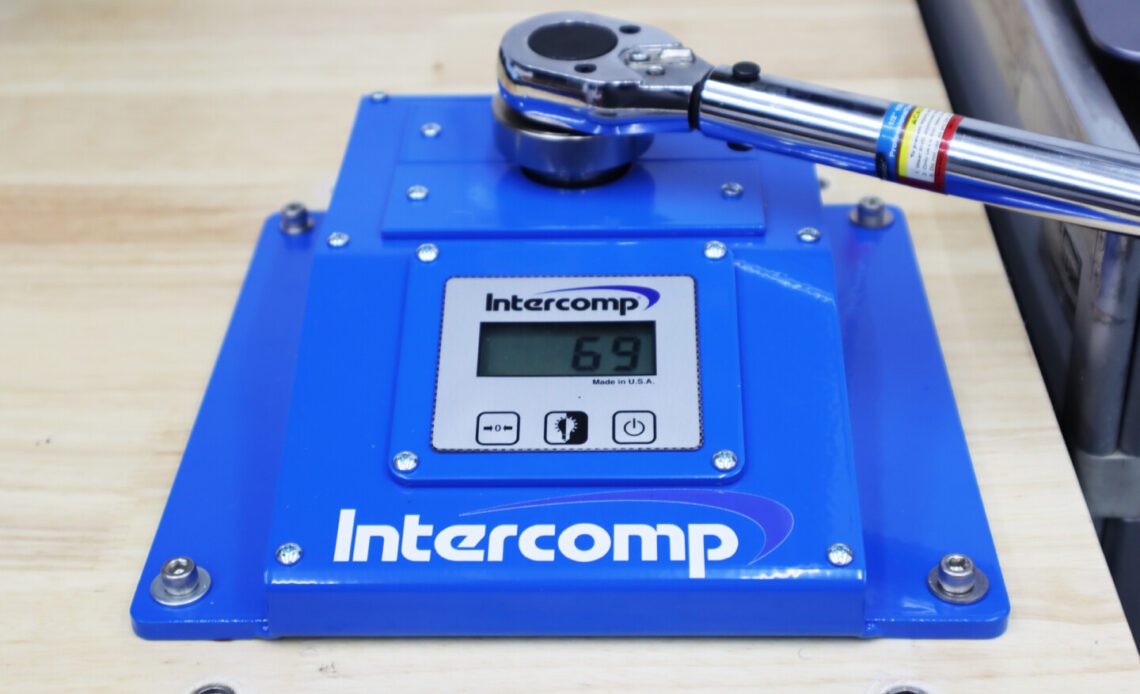When we consider what we want to feature for a Tool of the Month, there are a lot of criteria. One of the most heavily weighted criteria is extremely subjective, and that is how cool we think the tool is, personally. So, when you get a tool that incorporates digital technology with precision metrology, and the word “NIST” pops up, we get excited. Enter Intercomp’s Digital Torque Wrench Tester.
You might know Intercomp from their digital vehicle scales or their digital valve-spring testers — both of which are badass tools in their own right. Looking at their lineup of tools, it’s quite apparent that the company specializes in precision weight and measurement tools. So when we ran across their digital torque wrench tester (P/N: 102028), our pulse quickened a bit.
I’d wager to say that most, if not every one of you reading this owns a torque wrench. There is no arguing that precise torque being applied on fasteners is a critical part of building an engine. Maybe slightly less critical for other assemblies throughout the vehicle, but every single fastener in our vehicle, be it a factory street car or a full-custom race car, has a proper torque spec. Those specs aren’t pulled out of thin air, and they are an important part of proper assembly.
Simply owning a torque wrench is just one part of the equation. As they are precision-calibrated instruments, they are sensitive to time, use, and abuse. So it only stands to reason that you need a way to monitor the tool’s calibration and make sure that it’s still working properly before you use it. The Intercomp digital torque wrench tester allows you to check your wrench’s calibration on a regular schedule, or, whenever you feel like it. (We’re going to be diving much deeper into that subject in an upcoming article, so stay tuned for that.)
The unit is low-profile and compact, only taking up about 9×9 inches on your bench. We opted to mount it to the bench using 1/4-20 socket-head cap screws into EZ-Lok threaded inserts sunk into the wood benchtop.
Checking The Accuracy Of The Checker
Now, without getting too much into the future article discussing standards of measurement and calibration, the general rule of thumb is you want something on the order of 10 times more accurate or precise than the tool you are trying to calibrate. So, for a pair of calipers that measure to the thousandth of an inch (.001), you’d want a standard that is accurately measured to the ten-thousandth of an inch…
Click Here to Read the Full Original Article at DragzineDragzine…

